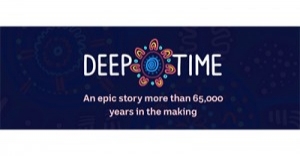

In early childhood services, leadership is relational. Whether you're guiding a new educator or supporting a seasoned team member through change, knowing when to coach and when to mentor is essential. These approaches aren’t interchangeable; they serve different purposes, require different skills, and yield different outcomes. This cheat sheet helps leaders distinguish between coaching and mentoring, apply each effectively, and embed both into everyday practice.
In the fast-paced world, leadership isn’t just about compliance or curriculum; it’s about connection. One of the most powerful, yet often overlooked, tools in a leader’s toolkit is the humble check-in ritual. These moments of intentional pause can transform team dynamics, foster psychological safety, and embed a culture of care into the everyday rhythm of a service.
A “Look-For” guide is a practical tool used by educational leaders and mentors to identify and reflect on key indicators of quality practice during observations, walkthroughs, or self-assessments. Think of it as a lens—it helps you focus on what matters most in a learning environment.
An educational leader in early childhood plays a pivotal role in shaping not just curriculum, but the entire culture of a service. The following article provides information on standout qualities that define effective leadership in this space and applying these qualities to a service.
Under the Children’s Services Award 2010, an allowance is payable to an educator formally appointed as the Educational Leader under Regulation 118 of the Education and Care Services National Regulations 2011. From 01 July, the educational leader's allowance will be paid based on the number of days per week you are appointed in the Educational Leader role.
Empowering educator well-being and belonging is about creating an environment where educators feel seen, supported, and valued—not just as professionals, but as whole people. When educators feel that what they do truly matters, they’re more engaged, resilient, and effective in fostering meaningful connections with children. Here are some ways to bring this into everyday practice.
Shifting toward a more interactive culture requires intentional, supportive practice. Here are some ideas to encourage educators to actively engage with children.
Becoming an effective leader in early childhood education requires mastering a blend of communication, organizational, and relationship-building skills. Here’s how educational leaders can develop and enhance their leadership abilities.
This template is a task overview of the responsibilities as an educational leader within an early childhood service.
 To Decision-Makers in Education and Care, I write to you as an educator and advocate for the safety and well-being of children and staff in… Read More
To Decision-Makers in Education and Care, I write to you as an educator and advocate for the safety and well-being of children and staff in… Read More
 In a sector built on nurturing, empathy, and care, it’s heartbreaking to witness how often educators themselves are left feeling isolated, undervalued, or even bullied.… Read More
In a sector built on nurturing, empathy, and care, it’s heartbreaking to witness how often educators themselves are left feeling isolated, undervalued, or even bullied.… Read More
 Australia is home to the world’s oldest continuous cultures, with First Nations Peoples holding stories, knowledge, and connections to Country that stretch back more than… Read More
Australia is home to the world’s oldest continuous cultures, with First Nations Peoples holding stories, knowledge, and connections to Country that stretch back more than… Read More
© 2009-2025 Aussie Childcare Network Pty Ltd. All Rights Reserved.
